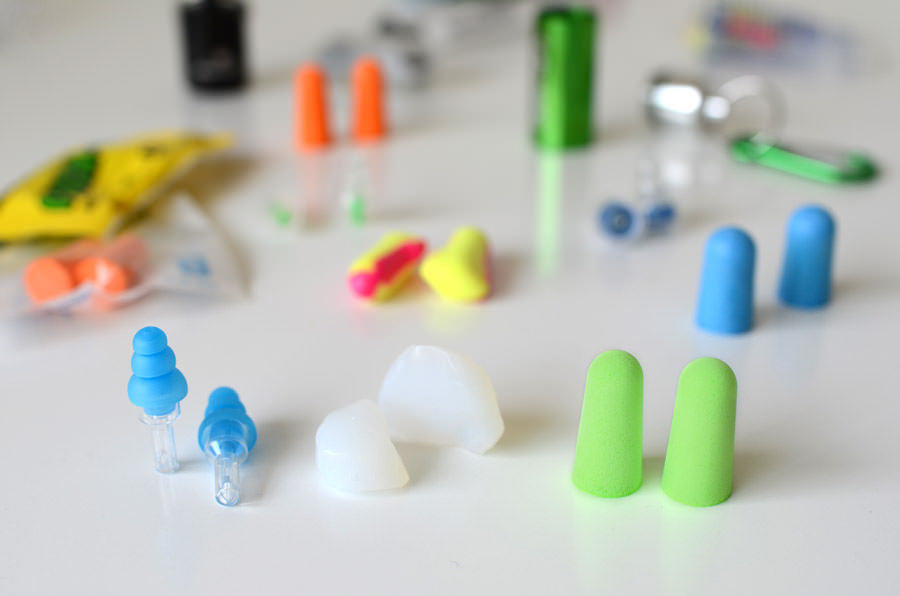
OTC Hearing Aids - are they right for you?
Over-the-Counter Hearing Aids – Are They Right for You?
--- For additional information on OTC hearing aids click here or call (831) 498-9890 ---
We are hearing a lot about over-the-counter OTC hearing aids now being available, but are they right for you? What are your choices? Who are they intended for and what are the key differences between OTC hearing aids and prescription hearing aids? And, why did the FDA feel the need for OTC options?
First, let’s clarify that OTC hearing aids, effective October 2022, will be available for purchase online or over-the-counter in many stores. A purchase will not require a hearing test or a prescription, but they are not the same as a prescription hearing aid. Prescription hearing aids are provided through a licensed hearing instrument specialist or a licensed audiologist and offer a range of choices and prices as well as the ability to customize to your modern life needs.
Why did the FDA want OTC options? The most important aspect of the FDA ruling was to encourage people to address their hearing loss and in doing so, it is believed that they will live healthier and more robust lives. Hearing loss has been linked to increased health issues such as the onset of cognitive decline, isolation, loneliness and depression.
Several articles discuss OTC hearing aids and the recent FDA ruling on August 16, 2022. The U.S. Food & Drug Administration cites the FDA news release on the final rule for Over-the-Counter (OTC) hearing aids
The ruling is an effort to provide individuals with hearing loss with more affordable choices of solutions for their needs by establishing a new category of OTC hearing aids. The big question is: would OTC hearing aids be right for you?
The news release states “The OTC category established in this final rule applies to certain air-conduction hearing aids intended for people 18 years of age and older who have perceived mild to moderate hearing impairment. Hearing aids that do not meet the requirements for the OTC category (for example, because they are intended for severe hearing impairment or users younger than age 18) are prescription devices.”
Actually, there have been options for the consumer for many years as amplifiers – that’s what they do – amplify the sounds around you to help you hear better in some circumstances. One might say that the first “amplifier” was the ear trumpet in the 1800’s, but the technology has changed significantly from those days! Personal sound amplification products (PSAP’s) are now distinguished from over the counter hearing aids and prescription hearing aids as both prescription and over the counter hearing aids are regulated as medical devices for those with hearing loss. PSAP’s are typically for those individuals with normal hearing, but who might wish amplified sounds in situations like bird watching, or other hobbies.
With the FDC creating a new category of OTC hearing aids (August 2022 to be effective October 2022), consumers need to be aware of some key differences between OTC hearing aids and prescription hearing aids.
The Healthy Hearing website has an article dated August 16, 2022 by Temma Ehrenfeld which suggests six key differences to consider. https://www.healthyhearing.com/report/53233-Otc-hearing-aids-over-the-counter-devices
Here is a brief discussion of those six critical areas discussed in the article:
- What are the differences in the diagnosis and testing to determine the consumer’s hearing loss?
For prescription hearing aids, the licensed audiologist or licensed hearing instrument specialist has the advanced testing and diagnostic tools, plus extensive training, to determine the consumer’s level of hearing loss.
For OTC aids, the consumer has to “perceive” the extent of their loss in order to make the choice of product – a primary difference!
- What degree of hearing loss is appropriate for each option?
Prescription hearing aids are typically best for mild to severe hearing loss.
OTC aids are primarily for those with “self-perceived” mild to moderate hearing loss.
- Once a choice is made who fits the aids for the consumer?
For prescription hearing aids, a licensed audiologist or licensed hearing instrument specialist will provide knowledgeable guidance and a guaranteed fit.
OTC aids are “self-fit” and dependent upon the consumer and their choice of product.
- What are the consumers’ choices once a hearing loss is established or perceived?
For prescription hearing aids, there is a full range of options and designs and includes customized choices.
OTC aids are typically limited in choice and often present a “one-size-fits-most” perspective.
- What are the cost differences?
Prescription aids typically vary in costs from 1k to 7k
OTC aids would typically be under 2k
- Who is the intended user of each hearing aid choice?
Prescription aids are intended for any age and any medical condition.
OTC aids are only for those consumers who are 18 years plus in age and without complex ear conditions – the article stresses that this is important – see below:
“According to the American Speech-Language-Hearing Association, if you have any of the following health conditions a prescription hearing aid fit by a licensed audiologist or hearing instrument specialist will work better for you:”
- Unilateral (one-sided hearing loss)
- Sudden recent hearing loss
- Ringing, roaring or beeping in one or both ears
- Take or have taken medication known to cause hearing loss
- Have a history of chemotherapy or radiation in head/neck area
- Have constant pain in ears
- Have frequent dizziness
Also noted in the article was the question of “what are the chances of being satisfied with an OTC hearing aid?
“A recent study showed that "premium" prescription hearing aids have the highest user satisfaction. This preference stemmed from factors related to comfort, specifically how the hearing aids processed background noise and how well the study participants could hear speech in a group setting. Because of the cost of the technology to develop these features, OTC hearing aids are unlikely to be as sophisticated.”
The article also cites studies where the “input of (a) knowledgeable provider is invaluable.”
The Listening Stack is available at two locations, one in Santa Cruz and one if Watsonville, to help you address your hearing health needs and offers a trained and licensed hearing instrument specialist as well as advanced tools to assist in determining your best options.
If you would like to know more about over the counter hearing aids or receive a hearing test to determine your hearing loss, please call us at (831) 498-9890 for a free consultation.
We look forward to helping you make the right choice so you can live a healthier life with better hearing!
Also in Hearing Loss

Discovery of New Neurons in the Inner Ear

Tinnitus And Ear Plugs: What You Should Know

